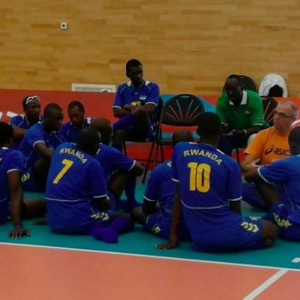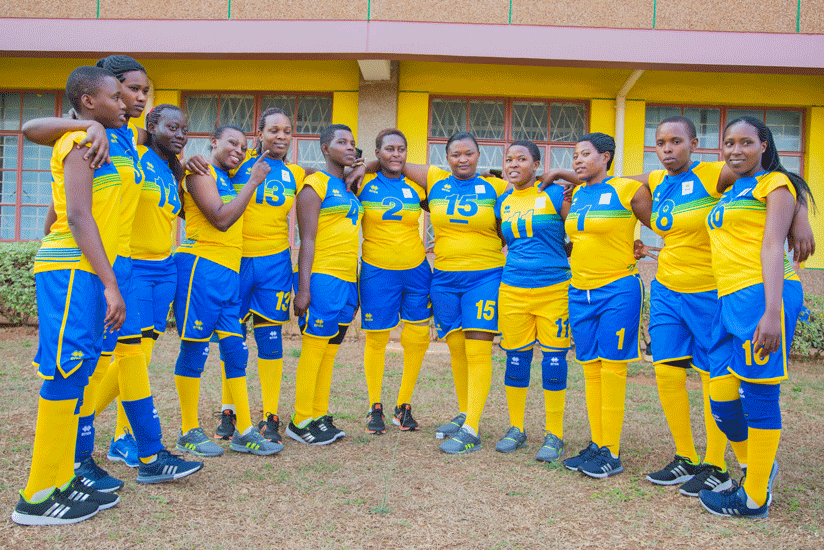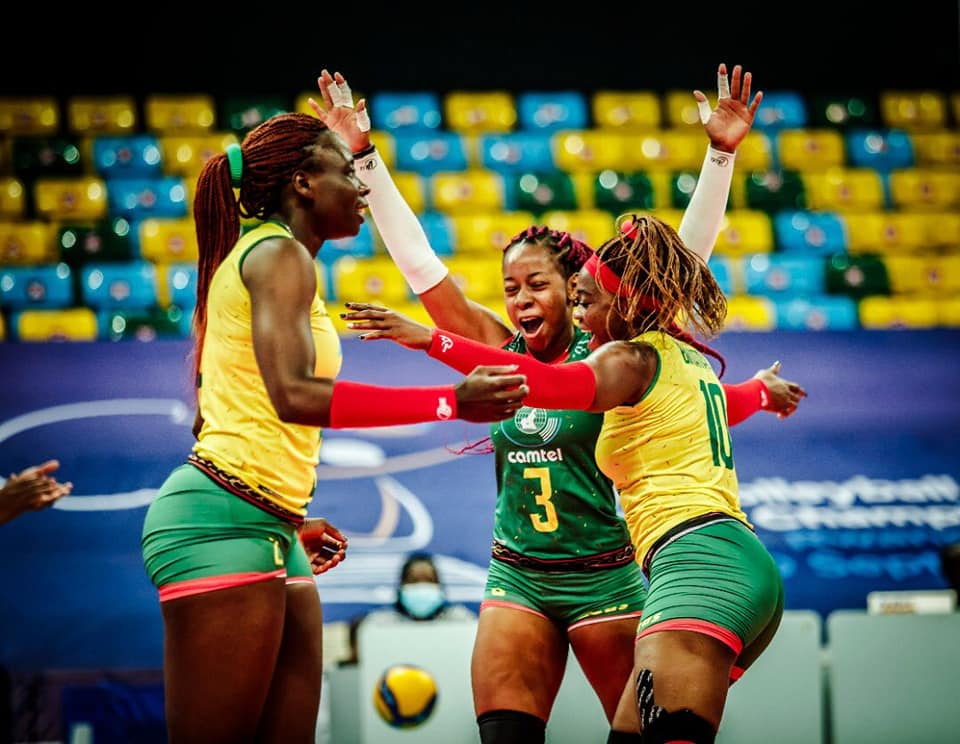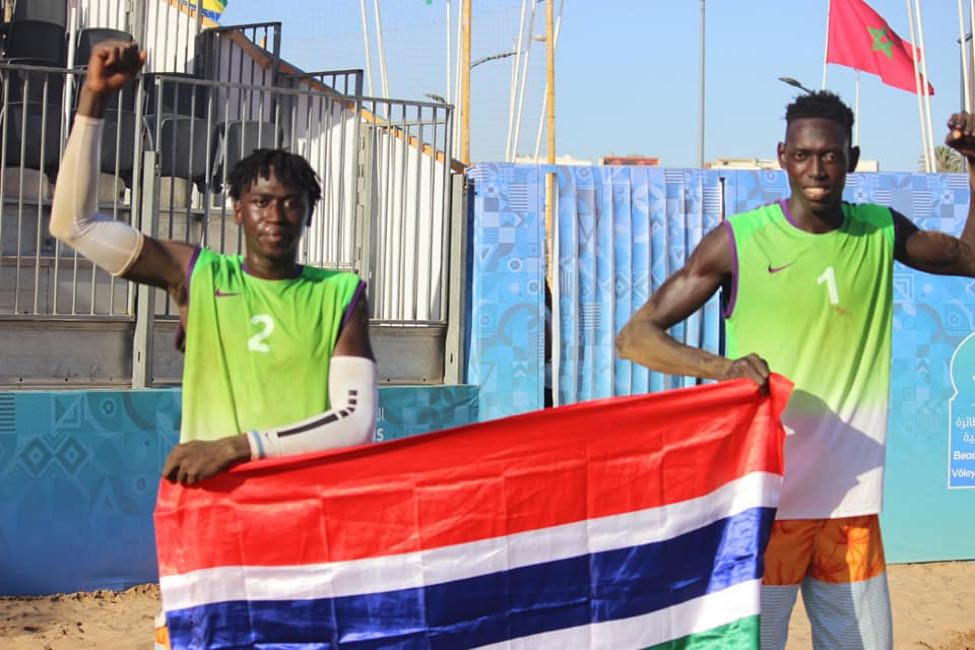On September 10th, the Rwandan women’s sitting volleyball team will become the first and only female African competitor at the Rio 2016 Paralympic Games. The team is placed in Pool B with China (top ranked), USA (2nd ranked), and Iran.
Joined by Dutch head coach Peter Karreman, the team has been preparing for their opening game against China upon their arrival in Rio last week. Pool B appears to be tough, but that won’t interfere with the team’s cheerful and optimistic mood. They have set out on a path intending to give it their all, with the aim of achieving a good result.
The team’s confidence is a result of their preparedness. Since 2014, the team has participated in several training camps and competitions in Europe (Slovakia and Netherlands) and China. Playing against top-tier teams like USA, Iran, Croatia, Finland and Hungary has contributed to the team’s experience, a key element going into the Rio Paralympic Games.
Team captain Liliane Mukobwankabo has been instrumental in helping the team earn a spot in this year’s Paralympics. With their ambitions set high, Mukobwankabo and her teammates are intent on leaving their mark at the games.
“We, athletes, are feeling good,” Mukobwankabo said. “And even though we have been playing sitting volleyball only for three years now, we do not want to go to Rio just to visit the city, but to win and enjoy the games.”
The President of the National Paralympic Committee (NPC), Celestin Nzeyimana, in a statement said, “We are hopeful the women’s team will perform well.” In addition to his statement, Nzeyimana told the media at the NPC-Rwanda headquarters, “Technically, the team (women’s sitting volleyball) is well prepared and has improved significantly, taking into consideration the level of performance in the previous warm-up matches.”
For Karreman, the games will be about securing at least a win or two against Canada or Iran and, in return, elevating the women’s team as it did the men’s team in London 2012.
This Time the Women Carry the Flag

Dutch coach Peter Karreman speaking to the Rwandan sitting volleyball team. (Paralympic Movement/IPC)
Following an impactful and successful international campaign by Rwanda’s men’s team, attention shifted to forming a women’s team.
“We were watching women perform without the representation of any African country,” Nzeyimana said. “And we were not pleased by this situation.”
Several training programs were formed to encourage more women to partake in the sport, leading to the formation of a national team of 12 female sitting volleyball players with the slogan “Towards Rio 2016” keeping them focused.
After winning the East African Championship title in August 2014, the next hurdle the team had to overcome in its bid to qualify for Rio 2016 was the African Championship in July 2015. Rwanda beat Egypt in the finals and they had earned their way towards Rio 2016.
What About the Men?
Rwanda’s men’s sitting volleyball team made its debut at the 2010 World Championships in Oklahoma, USA, showcasing the country’s first Paralympians. The men’s team’s performance boosted the nation’s spirits in what became a turning point after its first international appearance.
Karreman was instrumental in preparing the team for London 2012, a Paralympic debut for the nation. The men helped Rwanda became the first African country from the Sub-Saharan zone to qualify, and the second in the continent after Egypt. They finished in a motivating ninth place, while playing for the first time in front of an elated and cheerful crowd.
[perfectpullquote align=”full” cite=”” link=”” color=”” class=”” size=””]”The Paralympic debut went well and the team reached its goal of ‘not ending last.’ It was the first time to play in front of such a big crowd, who chanted ‘Rwanda, Rwanda,’ “[/perfectpullquote]
Karreman said.
The men’s team won’t be playing in Rio 2016 since the regional championships offered just one qualification slot (Egypt) unlike two from London. However, the team’s efforts did not go unnoticed. Aside from achieving popularity with the London 2012 crowd and media, the beloved team has done their country proud.
The Long-term Impact of Sports in Rwanda
Sports in Rwanda has become a key contributor toward social relations and integration. It serves as a bonding and healing tool for the Rwandans after the genocide in 1994, a devastating experience that split the country ethnically. “We are one team, we are all coming from different parts of the country, but we are all Rwandan, that is what counts,” Mukobwankabo said.
The nation’s impressive performance at the international level has encouraged more Rwandans with physical impairments to join clubs throughout the Sub-Saharan country.
Featured Photo: Rwanda’s women’s sitting volleyball team (F. Niyigena)

















